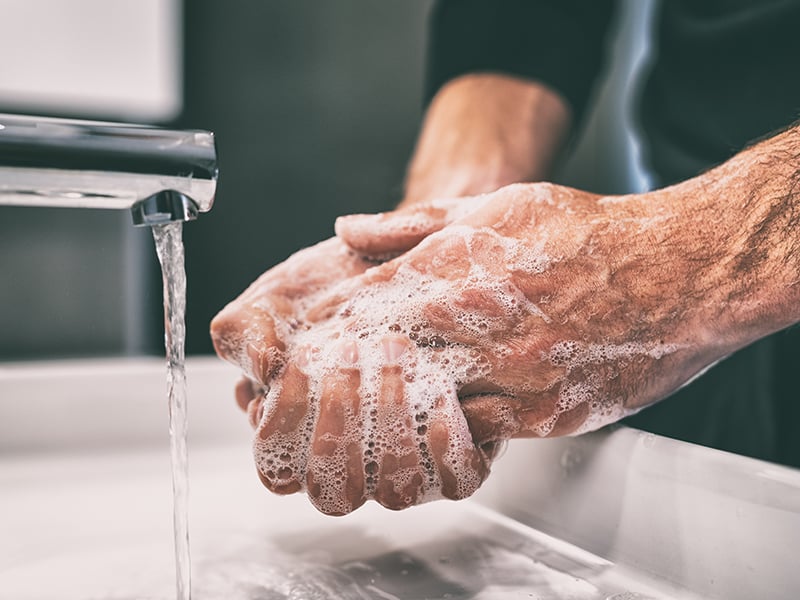
We don’t like to think about it, but germs are literally everywhere we go. We pick them up by touching door handles, gas pumps, credit and debit card readers, hand railings—and those are just the obvious places. What about everything you touch afterward?
Germs have traveled far and wide since the beginning of time thanks to people like us, moving about the world and going through our daily routines. Not all germs are created equally, though, and our immune systems are able to block some of them before they cause us harm. The problem is we never know what germs are where.
Luckily, some curious Babylonians discovered how to make soap around 2800 B.C. (yes, really). By 1500 B.C., the Egyptians began using it similarly to how we do today, as a cleansing agent for skin and sores. Greeks added lye. And so it went until the present day, where we still have to remind people to use soap and wash their hands as a matter of personal hygiene. So much for progress.
Today, we have several options for keeping our hands clean at home and on the go. But which is right for you—hand sanitizers, cleaning wipes or soap? Here are the pros and cons to help you decide.
Hand sanitizer
Pros: Alcohol-based hand sanitizer liquids and gels can be very effective at killing germs. According to the CDC, alcohol-based hand sanitizers can quickly reduce the number of microbes on hands in some situations, even though they do not eliminate all types of germs. A solution that contains at least 60 percent alcohol can keep you from getting sick and exposing others.
Cons: Hand sanitizers are less effective when hands are dirty or greasy, and they’re not good at removing harmful chemicals like pesticides. Overuse can do more harm than good, from aiding the development of antibiotic-resistant bacteria to causing dry, cracked skin.
Hand wipes
Pros: Hand wipes have a lot of advantages in their corner. First, they’re convenient and travel well. You can throw a handful of individually packaged wipes in your purse and have them when you need to clean your hands. Anyone who’s been to a crawfish boil or loves to dig into barbecued ribs can appreciate their usefulness in removing all manner of goop, grime and dirt from skin. Many wipes are on par with hand sanitizer gels for effectiveness, but never assume their strength—always read the packaging.
Cons: Using hand wipes isn’t as turnkey as squeezing a glob of gel into your palm. Once you’ve scrubbed your hands with a hand wipe, there is often a lingering chemical residue that doesn’t dry up on its own like hand sanitizer. They’ll get you halfway there, but you need a dry towel to finish the job. That residue also makes wipes a poor choice for cleaning kids’ toys and playing surfaces.
Soap and water
Pros: Truly, nothing beats fresh water (warm or cold), soap and a good 20-second-plus hand washing to rid your hands of germs. The process of lathering lifts dirt, grease and microbes from your skin, and washing away the soap under a stream of running water sends germs down the drain and out to pasture.
Cons: Let’s see, you can wash your hands too much and dry out your skin … and that’s about it. But given how bad we are at washing our hands—so bad that this exists to help us get to the 20-second mark—that would be a good problem to have.
Have fever or other COVID-19 symptoms? Get a free COVID-19 screening from UMMC through the C Spire Health Virtual COVID-19 Triage app.

















